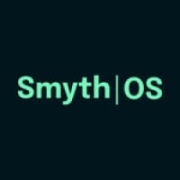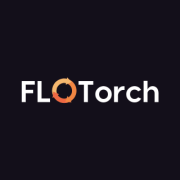AI Orchestration Frameworks streamline AI integration by coordinating tasks, automating workflows, and managing infrastructure to improve efficiency and scalability for businesses leveraging AI technologies.
The top 5 AI Orchestration Framework solutions are Langchain, SmythOS, Run:AI, SuperAGI and NVIDIA AI Enterprise, as ranked by PeerSpot users in January 2026. Langchain received the highest rating of 0.0 among the leaders and holds the largest mind share of 24.8%. Run:AI is the most popular solution in terms of searches by peers.
Providing a cohesive environment to deploy, monitor, and scale AI models, these frameworks simplify complex processes. They offer a unified interface for managing datasets, models, and compute resources and ensure seamless collaboration among data scientists, developers, and operations teams. Solutions in this category enhance resource allocation, minimize downtime, and optimize workloads for better performance.
What are the critical features of AI Orchestration Frameworks?
What benefits and ROI should users look for in AI Orchestration Frameworks?
In industries like healthcare, finance, and retail, AI Orchestration Frameworks ensure smooth integration of AI into existing systems. They help manage data pipelines, automate real-time decision-making, and maintain system reliability, thus enabling better service delivery and operational excellence.
AI Orchestration Frameworks enable businesses to effectively manage and deploy AI applications, reducing complexity in AI operations. They support a wide range of applications across different sectors, making AI more accessible and manageable for organizations.
| Product | Market Share (%) |
|---|---|
| Langchain | 24.8% |
| SmythOS | 15.5% |
| Run:AI | 15.1% |
| Other | 44.6% |








AI Orchestration Frameworks enhance automation by seamlessly integrating multiple AI components into a single workflow. They allow you to automate complex decision-making processes, ensuring that each AI model works harmoniously. This integration leads to reduced manual intervention, faster processing times, and a more efficient use of resources. Leveraging such frameworks, you can optimize task execution and focus on higher-level strategic goals.
What are the key components of AI Orchestration Frameworks?AI Orchestration Frameworks comprise several key components: a centralized control mechanism, data integration tools, and model management features. The control mechanism coordinates different AI tasks, while data integration tools ensure smooth data flow between systems. Model management features assist in deploying, monitoring, and updating AI models efficiently. By understanding these components, you can better design and implement an AI orchestration strategy that meets your organization's needs.
How do AI Orchestration Frameworks ensure scalability?AI Orchestration Frameworks ensure scalability by enabling dynamic resource allocation and efficient model deployment. These frameworks are designed to handle large volumes of data and process complex algorithms in real time. They allow you to scale your AI initiatives effortlessly, adapting to changing workloads without compromising performance. By employing these frameworks, you can achieve scalability while maintaining optimal speed and accuracy.
What are the security considerations in AI Orchestration Frameworks?Security in AI Orchestration Frameworks involves ensuring data privacy, incorporating robust authentication measures, and monitoring system activity. You need to address potential vulnerabilities by implementing encryption techniques and access control protocols. Regular audits and updates are crucial to maintaining a secure environment. By focusing on security, you can protect sensitive information and ensure that your orchestration processes remain compliant with industry standards.
How do AI Orchestration Frameworks impact decision-making?AI Orchestration Frameworks positively impact decision-making by providing actionable insights derived from integrated AI models. They process data in real time and offer predictions, recommendations, and trend analyses. This supports more informed and timely decisions, enabling you to respond quickly to market changes or operational demands. By leveraging the full potential of these frameworks, you can make data-driven decisions that align with your business objectives.